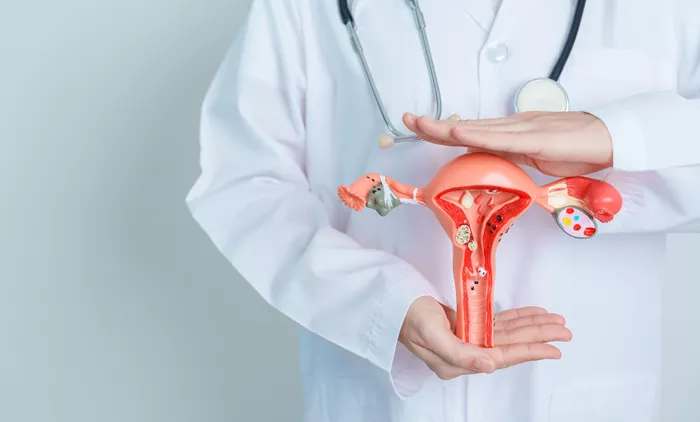Fibroids are common non-cancerous growths that develop in or around the uterus. Many women have fibroids without even knowing it because they often cause no symptoms. However, if you are trying to get pregnant or already pregnant, fibroids can raise concerns about your fertility and pregnancy health. This article explains how fibroids affect pregnancy, whether you can get pregnant with them, and what you should know to take care of your health.
Fibroids, also called uterine leiomyomas or myomas, are made of muscle and fibrous tissue. They vary in size, number, and location in the uterus. Some are tiny, like a pea, while others can grow as large as a grapefruit. Most women with fibroids have them inside the uterine wall (intramural), on the outer surface (subserosal), or inside the uterine cavity (submucosal).
How Common Are Fibroids?
Fibroids are very common. Studies show that up to 70% of women develop fibroids by the age of 50. They are especially common in women in their 30s and 40s, which is also the time many women try to get pregnant. Having fibroids does not always mean you cannot get pregnant. Many women with fibroids have healthy pregnancies and babies.
Can Fibroids Affect Fertility?
Fibroids can affect fertility, but this depends on their size, number, and location:
Submucosal fibroids (inside the uterus lining) are the most likely to cause problems with fertility. They can change the shape of the uterine cavity, making it hard for the embryo to implant and grow.
Intramural fibroids (within the muscle wall of the uterus) may reduce blood flow to the uterine lining or distort the shape of the uterus. Large intramural fibroids can sometimes interfere with implantation or increase the risk of miscarriage.
Subserosal fibroids (on the outer surface of the uterus) usually do not affect fertility because they do not change the inside of the uterus.
How Do Fibroids Affect Pregnancy?
If you do get pregnant with fibroids, there are some risks to be aware of:
Miscarriage: Fibroids, especially large or submucosal ones, can increase the chance of miscarriage.
Preterm labor: Fibroids may cause the uterus to contract early, leading to premature birth.
Placental problems: Fibroids can interfere with the placenta’s attachment, causing complications.
Fetal growth restriction: Large fibroids can reduce space in the uterus, affecting baby growth.
Delivery complications: Fibroids may block the birth canal or cause abnormal baby positions, increasing the chance of cesarean delivery.
Despite these risks, many women with fibroids have normal pregnancies and healthy babies.
Signs and Symptoms of Fibroids
Many women with fibroids do not have symptoms. But if symptoms occur, they may include:
- Heavy or prolonged menstrual bleeding
- Pelvic pain or pressure
- Frequent urination
- Constipation
- Pain during intercourse
If you have these symptoms and are trying to get pregnant, talk to your doctor.
How Are Fibroids Diagnosed?
Fibroids are usually found during a pelvic exam or imaging tests such as:
- Ultrasound: The most common test to see fibroids and check their size and location.
- MRI: Sometimes used for detailed images.
- Hysteroscopy: A small camera is inserted into the uterus to look inside, especially for submucosal fibroids.
Treatment Options for Fibroids Before Pregnancy
If fibroids are causing symptoms or fertility problems, your doctor may suggest treatment before trying to get pregnant:
Medication: Hormonal medicines can shrink fibroids or control heavy bleeding, but these are usually temporary.
Surgery: Removing fibroids, called myomectomy, can improve fertility, especially if the fibroids distort the uterine cavity.
Other procedures: Some women have minimally invasive treatments like uterine artery embolization, but this is usually not recommended if you want to get pregnant.
Can You Get Pregnant with Fibroids?
Yes, many women with fibroids can get pregnant. Small fibroids or those located outside the uterine cavity often do not affect fertility. If your fibroids are large, multiple, or inside the uterine lining, it may be harder to conceive. Your doctor can help assess your situation and recommend the best plan.
Tips for Women with Fibroids Who Want to Get Pregnant
Regular checkups: Have your fibroids monitored by your doctor.
- Healthy lifestyle: Eat a balanced diet, exercise regularly, and avoid smoking.
- Manage symptoms: Talk to your doctor about medicines or other ways to relieve pain or bleeding.
- Plan pregnancy: Work with your healthcare provider to decide if treatment before pregnancy is needed.
- Stay positive: Many women with fibroids have successful pregnancies.
What to Expect If You Are Pregnant with Fibroids
During pregnancy, your doctor will monitor the fibroids closely. Some fibroids may grow due to hormonal changes. You may have more frequent ultrasounds to check the baby’s growth and position. If complications arise, your doctor will discuss the best care options.
When to See a Doctor
Contact your doctor if you:
- Have heavy bleeding or severe pain
- Notice unusual symptoms during pregnancy
- Have difficulty conceiving after one year of trying (or six months if over 35)
- Early medical advice helps protect your health and pregnancy.
FAQs About Pregnancy and Uterine Fibroids
1. Can small fibroids stop me from getting pregnant?
Usually, small fibroids that do not distort the uterus do not affect pregnancy chances. Many women with small fibroids conceive naturally.
2. Is surgery always needed to get pregnant if I have fibroids?
Not always. Surgery is considered if fibroids cause symptoms or affect the uterine cavity. Your doctor will guide you based on your condition.
3. Can fibroids cause miscarriage?
Fibroids, especially large or submucosal ones, can increase miscarriage risk, but many women with fibroids carry healthy pregnancies.
Related topics:
- What Most Women Don’t Know About Fibroids?
- Understanding Fibroids: Key Health Facts & Advice For Women
- Does HRT Cause Fibroids To Grow? What You Should Know


